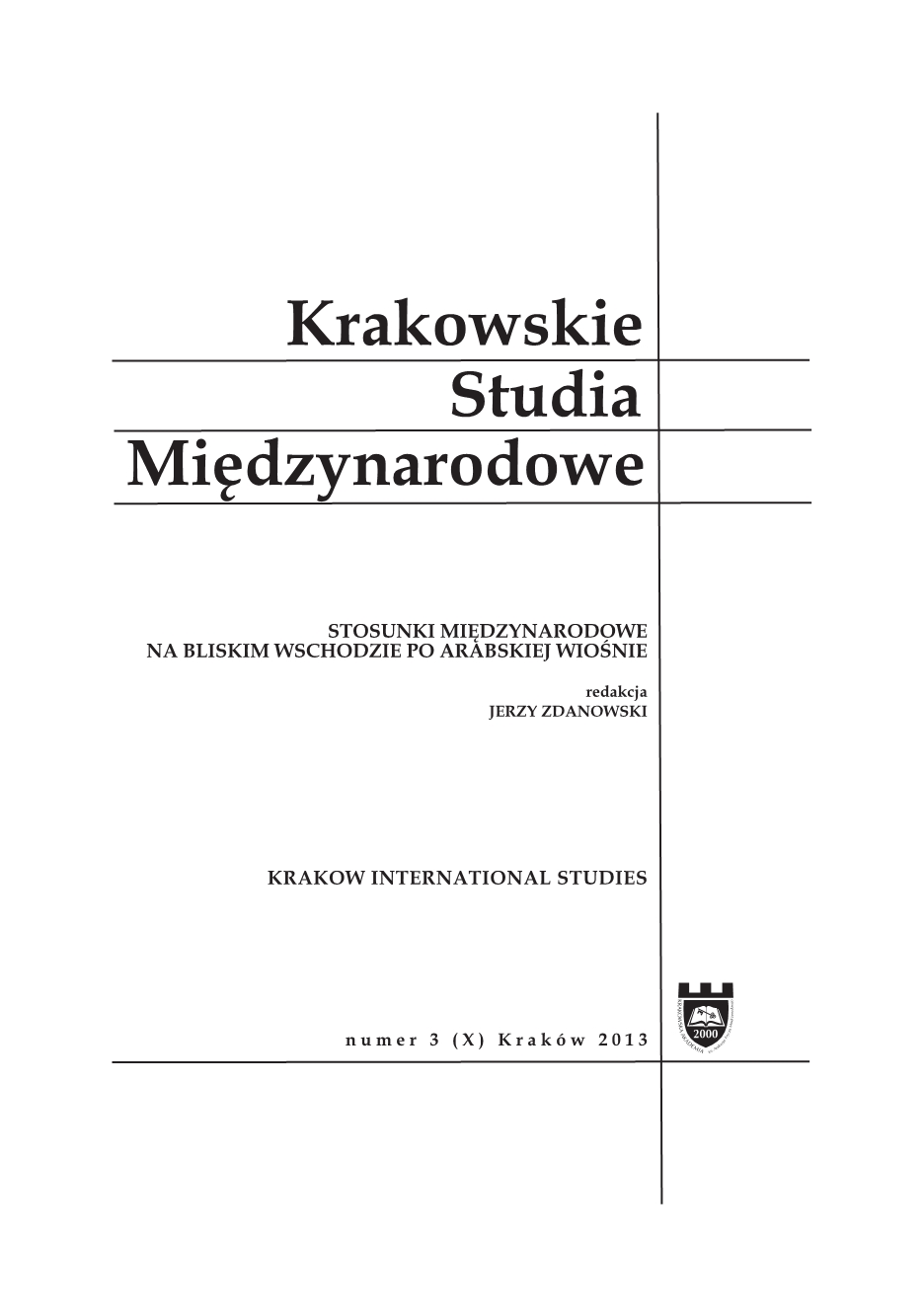
We kindly inform you that, as long as the subject affiliation of our 300.000+ articles is in progress, you might get unsufficient or no results on your third level or second level search. In this case, please broaden your search criteria.

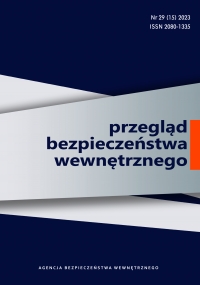
With almost 20% of the world’s natural gas reserves and more than 6% of the world’s oil reserves, Russia’s economic development is based on the production and export of hydrocarbons. This article is an excerpt from a diagnostic and analytical study of Russia’s energy resources, which, with the help of pipelines, shapes the market of consumers, influencing their attitudes and behaviour in line with its interests. The series of sanctions imposed on the Russian Federation after 24 February 2022, in connection with the full-scale aggression against Ukraine, poses the question of the future of the Russian energy sector and an alternative to the hydrocarbon market there. The author reconstructed bilateral energy relations between the People’s Republic of China and the Russian Federation by analysing the history, current situation and making predictions about the potential future of bilateral cooperation in the light of the reduction of Russian energy presence in Europe. The article has been expanded to include an update on the state of bilateral relations in the first half of 2023.Słowa kluczowe: Rosja, Chiny, Azja, ga
More...
After regaining its independence in 1918, Poland faced a number of security challenges. The most important of these was survival in the face of revisionist steps taken by aggressive neighbours, including Germany and the USSR. One important aspect of this threat was to determine the risk of the Weimar Republic unleashing chemical warfare against the Second Republic. In order to cope with this intelligence task, the Second Department of Polish General Staff developed a number of instructions whose structure and internal logic is comparable to the indicator analysis technique developed only 60 years later by the American Intelligence Community. On the basis of material preserved in the State Archive in Gdańsk and contemporary textbooks on information analysis techniques, it is shown how officers of Polish military intelligence, decades before the method of indicator analysis was formalised, developed their own way, which is essentially identical to it. This demonstrates the remarkable innovation and organisational capacity of the newly forming intelligence service of the reborn state.
More...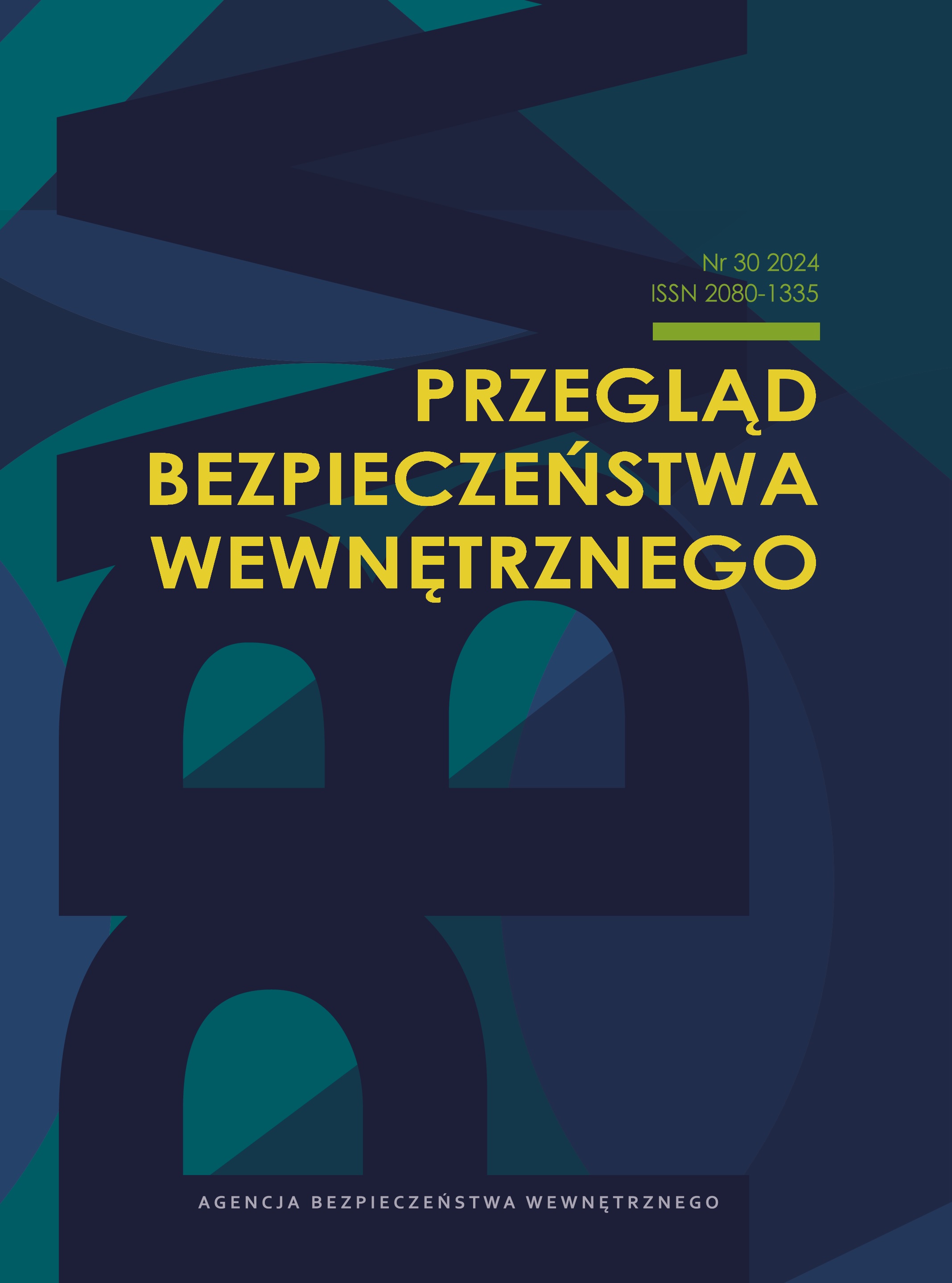
The subject of information activities carried out by the Russian Federation was taken up as a result of the dynamic changes taking place in the security environment. Research methods from the field of scientific research methodology typical for social sciences were used to implement the undertaken research problem. The comparative method was used to juxtapose narratives. The method of content analysis included the analysis of the source material obtained from the information environment. The introduction presents information on the essence of information activities as an element of military activities. The next section of the article presents information activities that enabled the achievement of political goals both in Russia itself and on the international arena. The conclusions indicate those activities that diversified the recipients. The result of the conducted research was the identification of those information activities that allowed the Russian Federation to impose its arguments on the Russian society and in the global competition of superpowers.
More...
The article focuses on the issue of international sanctions of a financial nature in the context of, in particular, the challenges to their effectiveness generated by the cryptocurrency market. An essential point of reference for this analysis is the current case of sanctions imposed by the Council of the European Union (supported by the application of complementary sanctions by part of the international community) on the Russian Federation in relation to that country’s military aggression against Ukraine. The aim of this article is to show different perspectives on the assessment of the effectiveness of sanctions and, in particular, to identify the sources why, in a key number of cases, while weakening the economic potential of the sanctioned state, they nevertheless fail to achieve the original objective of their imposition, i.e. the deterrence of military action. In this subject, the axis of interest is the current and prospective impact of blockchain-based financial solutions on the creation of an important loophole in the sanctions regime to eliminate or marginalise the effects of international financial sanctions. The issue is also assessed through the prism of the crypto-asset market regulation entering into force in the European Union in the near future and the implementation of the so-called travel rule for cryptocurrency transactions.
More...
The author analysed the scale of betrayal among the officers and officials of the Ukrainian state during the annexation of Crimea by the Russian Federation in 2014. The main research problem was an attempt to explain the anomaly in the activities of the special services in the form of recruiting 1,400 officers of the Ukrainian SBU to the Russian FSB. In an attempt to explain this phenomenon in the practice of secret services, the author used the theory of offensive intelligence and counter-intelligence created and developed in the USSR from the early 1920s, as well as the findings of cognitive psychology regarding the phenomenon of projection as the main mechanism for explaining the behavior of other people. Thanks to the synthesis of psychology and the analysis of the theoretical achievements of the Soviet secret services, the author put forward a hypothesis about the mass recruitment of the SBU officers in the Crimea long before the annexation. According to the author, the main mechanisms of mass recruitment of agents in order to control the opponent’s organisation were broadly understood corruption and cronyism characteristic to the post-Soviet area.
More...

The subject of information activities carried out by the Russian Federation was taken up as a result of the dynamic changes taking place in the security environment. Research methods from the field of scientific research methodology typical for social sciences were used to implement the undertaken research problem. The comparative method was used to juxtapose narratives. The method of content analysis included the analysis of the source material obtained from the information environment. The introduction presents information on the essence of information activities as an element of military activities. The next section of the article presents information activities that enabled the achievement of political goals both in Russia itself and on the international arena. The conclusions indicate those activities that diversified the recipients. The result of the conducted research was the identification of those information activities that allowed the Russian Federation to impose its arguments on the Russian society and in the global competition of superpowers.
More...
The article focuses on the issue of international sanctions of a financial nature in the context of, in particular, the challenges to their effectiveness generated by the cryptocurrency market. An essential point of reference for this analysis is the current case of sanctions imposed by the Council of the European Union (supported by the application of complementary sanctions by part of the international community) on the Russian Federation in relation to that country’s military aggression against Ukraine. The aim of this article is to show different perspectives on the assessment of the effectiveness of sanctions and, in particular, to identify the sources why, in a key number of cases, while weakening the economic potential of the sanctioned state, they nevertheless fail to achieve the original objective of their imposition, i.e. the deterrence of military action. In this subject, the axis of interest is the current and prospective impact of blockchain-based financial solutions on the creation of an important loophole in the sanctions regime to eliminate or marginalise the effects of international financial sanctions. The issue is also assessed through the prism of the crypto-asset market regulation entering into force in the European Union in the near future and the implementation of the so-called travel rule for cryptocurrency transactions.
More...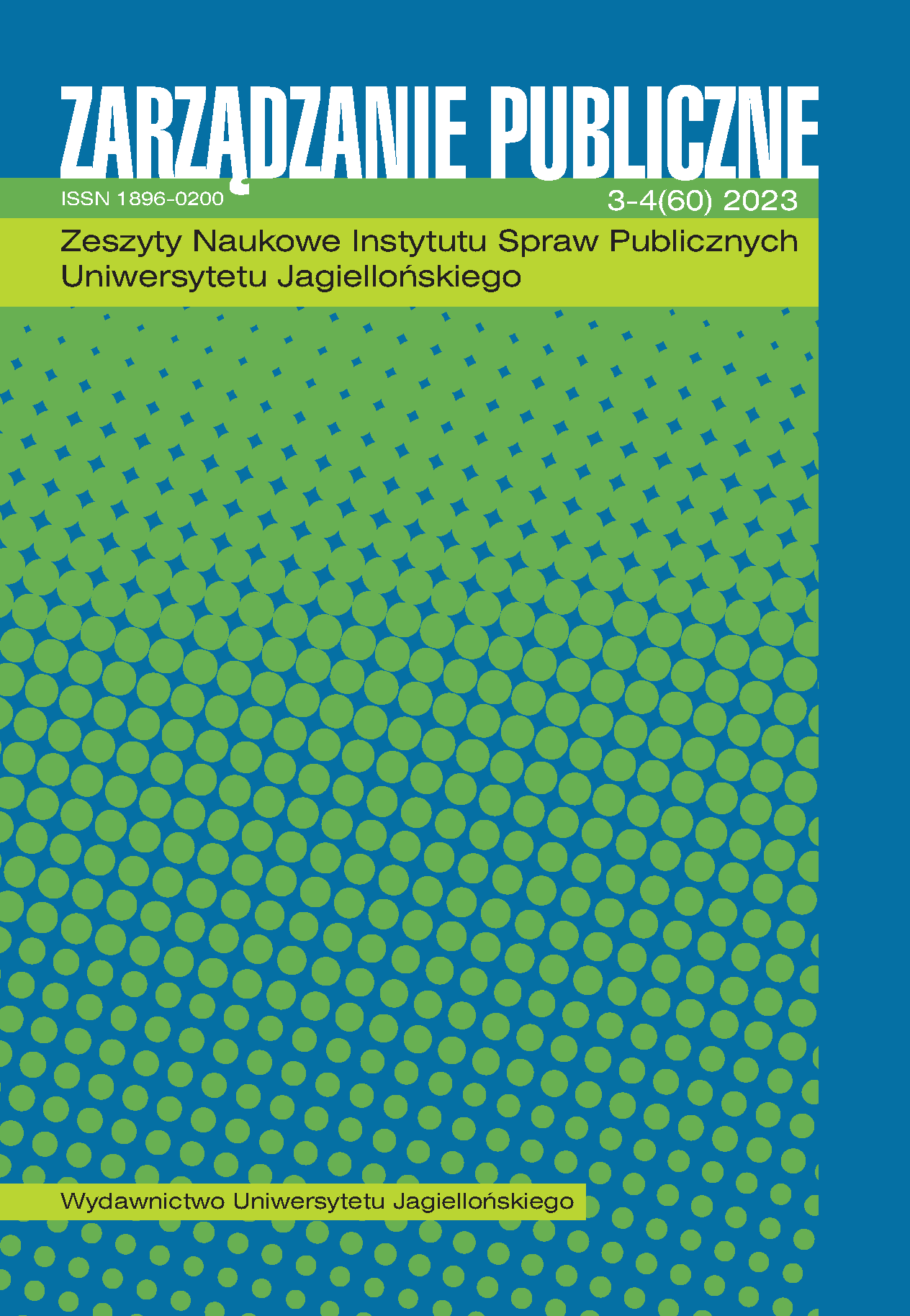
The main objective of the present study is to learn about the understanding of civil society among the students of Kraków’s econdary schools. A school is an institution that, apart from teaching and creating space for students’ learning, performs other social functions, including socialisation and development of subjectivity. School is the first community in one’s social life that can be a space for the development of social, democratic and civic competences. The starting point is learning about students’ mental models regarding the construct of civil society. Qualitative research was conducted among 308 secondary school students from the city and Commune of Kraków. The young generation understands civil society as con-sisting of active citizens who create an engaged, independent, goal-oriented community. However, our research shows that this concept is understood differently and that this understanding needs to be debated and constructively discussed among young citizens. The authors also set a practical goal of developing recommendations for schools on how to support students’ civic articipation.
More...
In the Italian Republic, the management of the educational system has been divided between the Ministry of Education, Higher Education and Science, and its delegations in twenty Italian regions, as well as – in partial addition to that – the authorities of the regions comprising 94 provinces and municipalities (with highly diverse demographic and economic potential). The Article 34 of the 1947 Constitution of the Italian Republic obliges the state as well as regional and local authorities (in provinces and municipalities) to ensure equal access to education. Italian law establishes compulsory schooling of at least eight years of instruction. In doing so, it guarantees free primary and secondary education. At the same time, it mandates the removal of discriminatory practices. Able-bodied youth are guaranteed by law financial and material support in accessing educational institutions up to and including the university level. This guarantee is implemented through a system of scholarships and allowances, in which regions and local communities (and authorities) can also participate.As of 2019, the civic education program conducted for at least 33 hours per school year has been mandated by law as an element of compulsory teaching in Italian schools after years of previously variable practice. The program of this separate subject includes four main thematic segments: a) knowledge of the rights and duties of a human being and citizen, b) knowledge of the institutions of public power at the state, regional, and local levels, c) knowledge of the environment and instruments for its protection, d) knowledge of the institutions of the European Union and the entitlements of single European citizenship. The civic education should be taught not only in all public schools but also in both types of the non-public (with some autonomy as to the methods of teaching and the sequence of its content) schools in Italy as an independent subject that is to be assessed in the context of its educational effects.
More...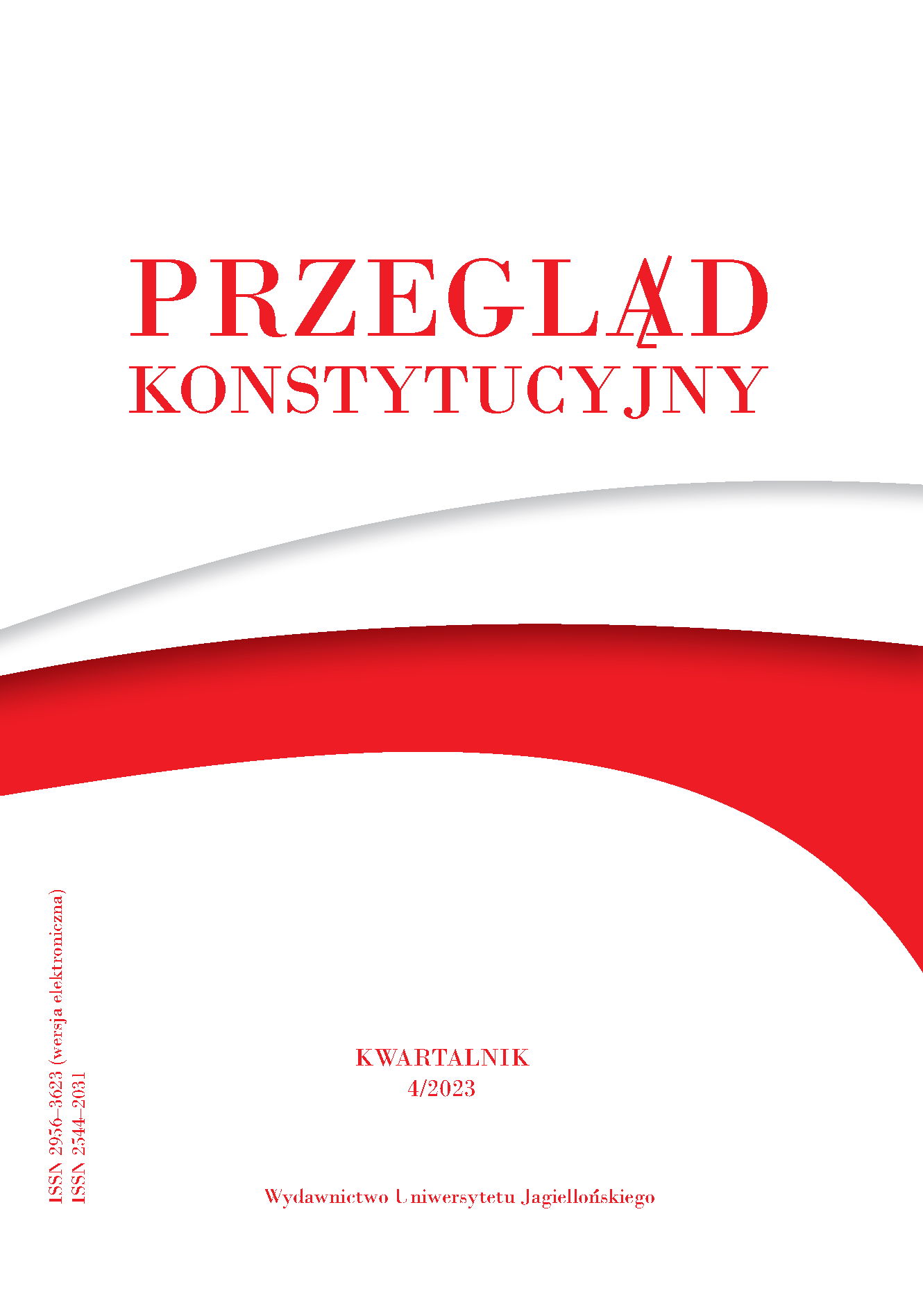
The chilling effect is a real threat to freedom of expression and unfettered public debate. It occurs when, as a result of the conduct of public authorities, an individual decides to refrain from freely exercising his or her rights, even though they have not been formally restricted or taken away. This self-restraint is caused by fear of the negative consequences of freely exercising one’s rights, which leads the individual to calculate whether the action in question, although formally lawful, is cost-effective. Such a fear should be real and therefore at least substantiated by objective factors. The account is less obvious if the renunciation of the exercise of rights is based on a threat that is unreal or vague.In legal discourse, the chilling effect is also identified, not necessarily correctly, in different contexts. First, it is sometimes recognised in cases of pressure by political authorities on independent judges. Second, it is claimed in relations between non-state actors, especially between government-sponsored private agencies that launch smear campaigns against political opponents, or between internet platforms and their users. Such use of the chilling effect doctrine may be intellectually appealing, but ultimately dilutes its meaning.It is much easier to identify a chilling effect when it is assumed to be the consequence of a flaw in the design of a legal provision than when it is alleged to result from acts of application of the law. In the latter case, the concept of chilling effect seems to serve two main purposes: the criticism of bad practices on the part of public actors, and the strengthening of the persuasiveness of judicial decisions that employ the concept. Its usefulness for legal analysis is therefore limited.
More...
In its judgment of 22.10.2020 (K 1/20), the Constitutional Court ruled out the possibility of aborting a pregnancy due to the occurrence of a so-called embryopathological premise. It deprived women of the possibility to make an autonomous decision in the case of severe and irreversible disability or incurable disease of the fetus. The paper analyses the Court’s errors in, inter alia, establishing the constitutional status of the nasciturus, conducting the dignity argument or the proportionality test. The authoress shows that the judgment is political and ideological in nature and that the Court refers to the judgment in Case K 26/96 in a selective and manipulative manner. The text to some extent polemics with the theses of P. Łącki and B. Wróblewski presented in the paper on Niekonstytucyjność tzw. aborcji eugenicznej (embriopatologicznej). Schemat argumentacji Trybunału Konstytucyjnego w sprawie K 1/20 (Unconstitutionality of the so-called eugenic (embryopathological) abortion. The pattern of argumentation of the Constitutional Tribunal in Case K 1/20), which came out in the previous issue of the “Przegląd Konstytucyjny” quarterly.
More...
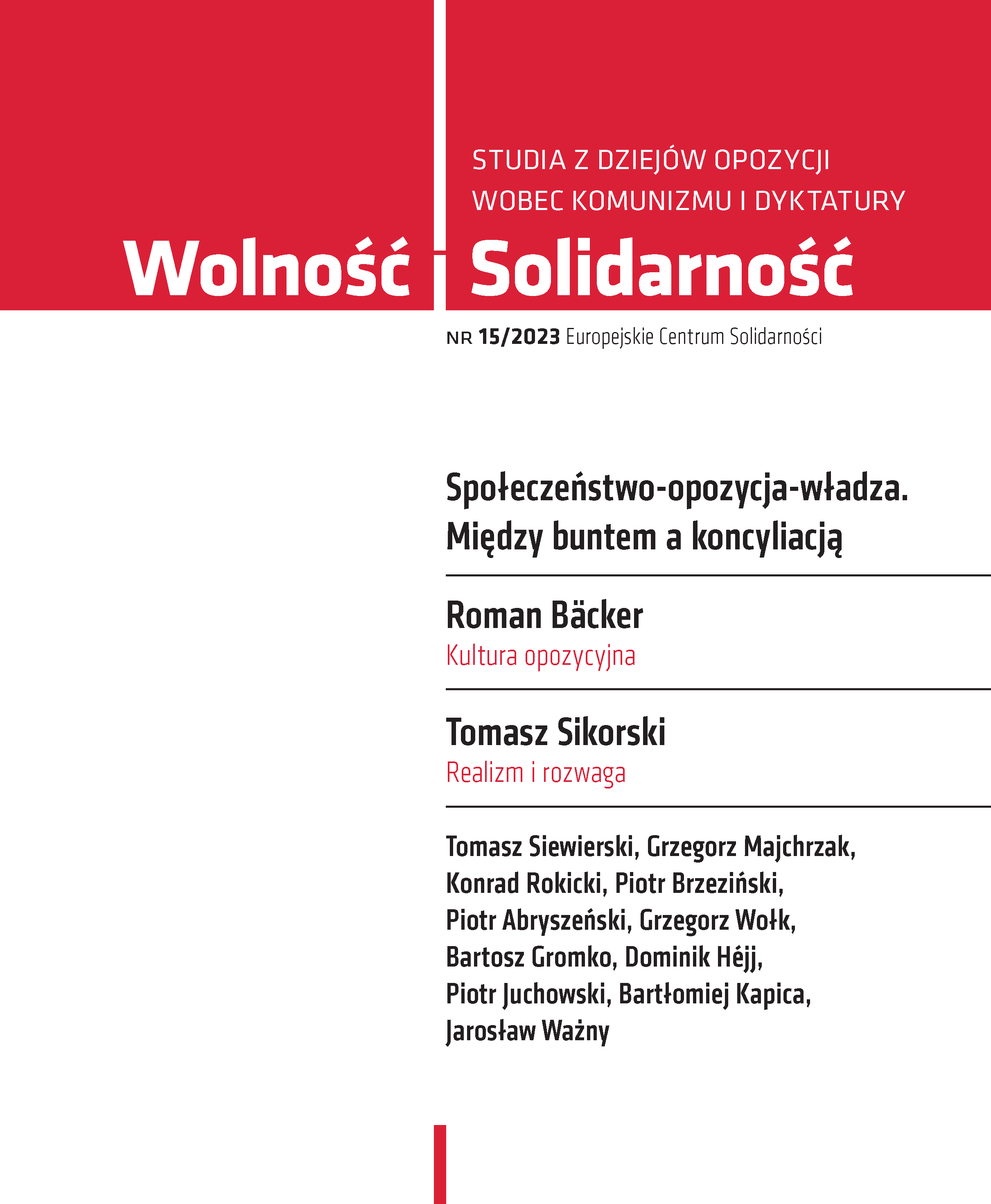
The article discusses the relationship of the movement associated with the Center for Documentation and Social Studies to the birth of ”Solidarity“ (August–November 1980). Established in 1967, ODiSS first remained in a close formal-legal relationship with the ”Więź“ team and the Warsaw NCI (as part of the ”Znak“ movement), then in 1974 became independent, creating a separate entity, alternative and competitive to other Catholic circles and groups. ODiSS saw Solidarity as both a labor syndicate and a mass movement for social revictimization and social empowerment. Activists and participants in the movement were actively involved in assisting regional and company structures of the union, providing advice and legal assistance, and applying for workers’ rights in the forum of the People’s Republic of Poland’s parliament. At the same time, they warned against political involvement of ”Solidarity“, demands for system change, etc. ODiSS, representing religious people, remained in close contact with Primate S. Wyszynski and the Episcopate, although it was an autonomous environment, acting on its own responsibility. It also held formal and informal talks with representatives of the communist regime. It considered it crucial for both sides of the August agreements to keep their commitments and guarantees, which was to serve a genuine national understanding and the real democratization of socialism. In its activities, it adopted the ”constructive center“ formula. Being aware of operating within the framework of the legal and political rules in force (a concessionary environment), it balanced between what was optimal and what was possible in certain political realities, hence in its assessment of “Solidarity” it maintained prudent moderation, prudence and realism.
More...
The article discusses the main threads of interest among historians publishing in the underground journal “Krytyka” during the years 1978–1989. It highlights the most important topics in contemporary history that, due to censorship reasons, either did not exist or were distorted in the official historiography of the People’s Republic of Poland (PRL). These topics included the history of the Polish armed anti-communist underground, the crimes of the security apparatus, the history of the Polish Socialist Party, Polish-Ukrainian, and Polish-Jewish relations, as well as key issues in post-war political history, such as the events of March 1968. The article devotes considerable attention to the authors of articles that aimed to restore memory and supplement knowledge about these issues. It also attempts to reflect on their involvement in the opposition movement in the context of their previous professional and political experiences.
More...
The article describes the political activity of the First Secretary of the Voivodeship Committee of the Polish United Workers’ Party in Gdańsk, Tadeusz Fiszbach, in the early 1980s. The author analyzes the role played by this politician during the strikes of August 1980, describes his attitude towards the independent trade union and his policy towards “Solidarity” movement until martial law was introduced. It shows the complicated relations between the Gdańsk secretary and “Solidarity” against the background of the most important local and national events. He attempts to verify the still popular myth that Fiszbach was a silent ally of “Solidarity” working in the PUWP authorities in 1980–1981. The article is based on extensive archival research, literature on the subject and accounts of historical witnesses, including several interviews conducted by the author with Tadeusz Fiszbach himself.
More...
British diplomacy kept a close eye on the development of dissident movements from the Soviet sphere of influence. Despite the realisation that their influence on political life was marginal, from 1976 until the emergence of Solidarity there was a steadily growing interest in the growing number of Polish opposition groups. At some point it was decided to establish direct contacts, an operation without precedent in the other countries subordinated to the USSR. The article focuses on reconstructing the Foreign Office’s knowledge of dissident movements in the People’s Republic of Poland and their perception by the British.
More...
Francesco Ricci (1930–1991) was an Italian priest, canon of the cathedral of Forli, ecclesiastical assistant of the Communion and Liberation, and rector of the church of San Filippo Neri in Forli. He travelled to many countries to promote Communion and Liberation: Yugoslavia, Peru, Poland, Hungary, Japan and Korea, Uganda, Paraguay, Czechoslovakia, and Brazil. Due to his interest in Eastern Europe, which was then under communist rule, he founded the Center for the Study of Eastern Europe (CSEO) in Forlì, which was dedicated to deepening and spreading knowledge about the countries of this area in Italy. The Center published, among others: translations of works by Václav Havel, Józef Tischner, and other authors.
More...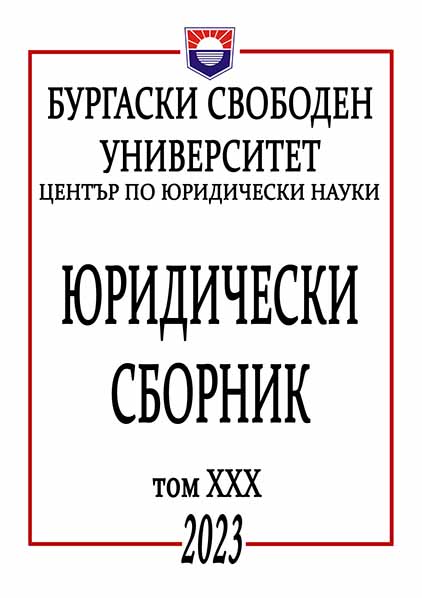
The protection of life, health and property of individuals and legal entities in the country during disasters is a primary task of the state authorities. The need to build aviation capacity and develop the management system for this purpose is substantiated.
More...